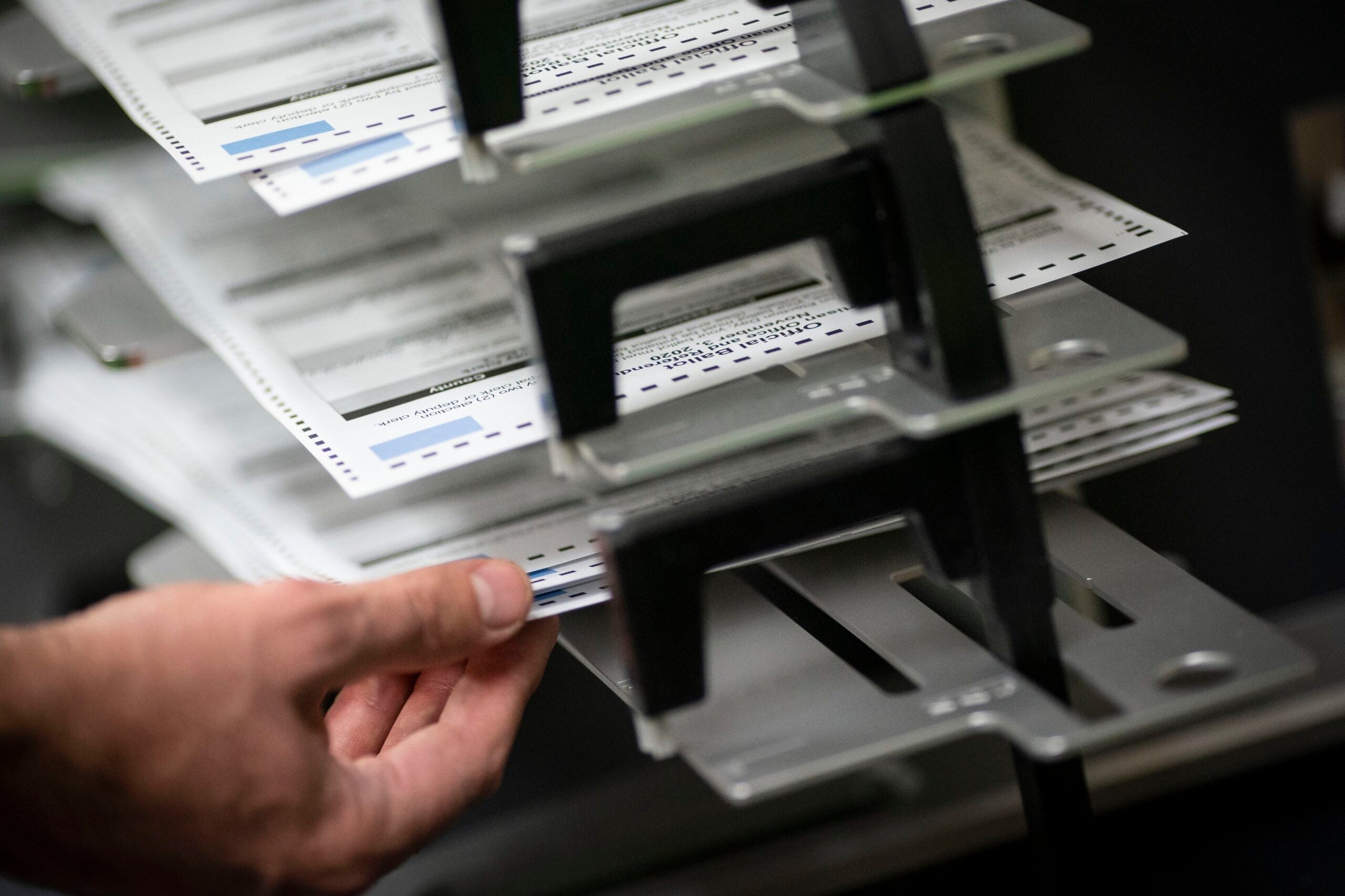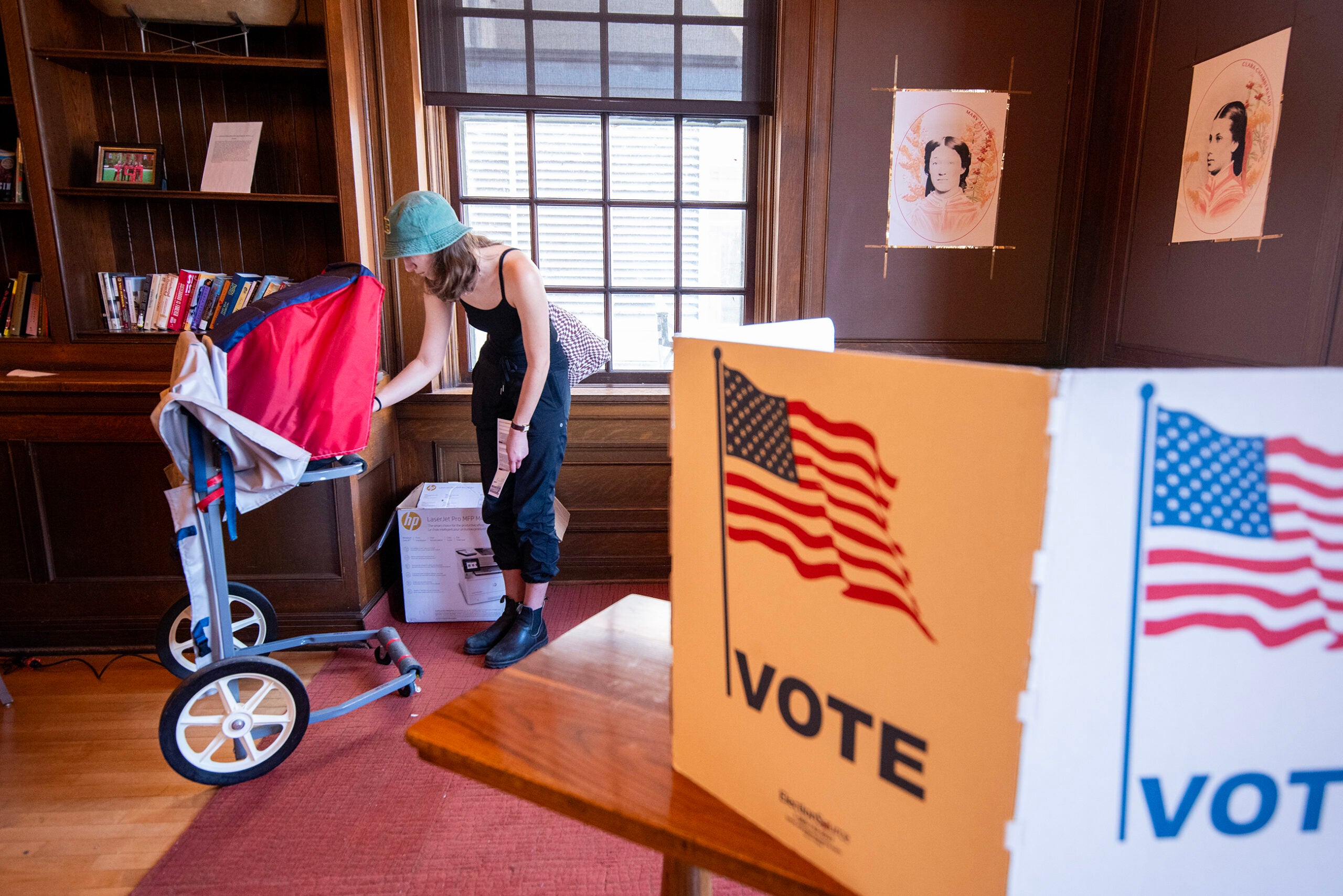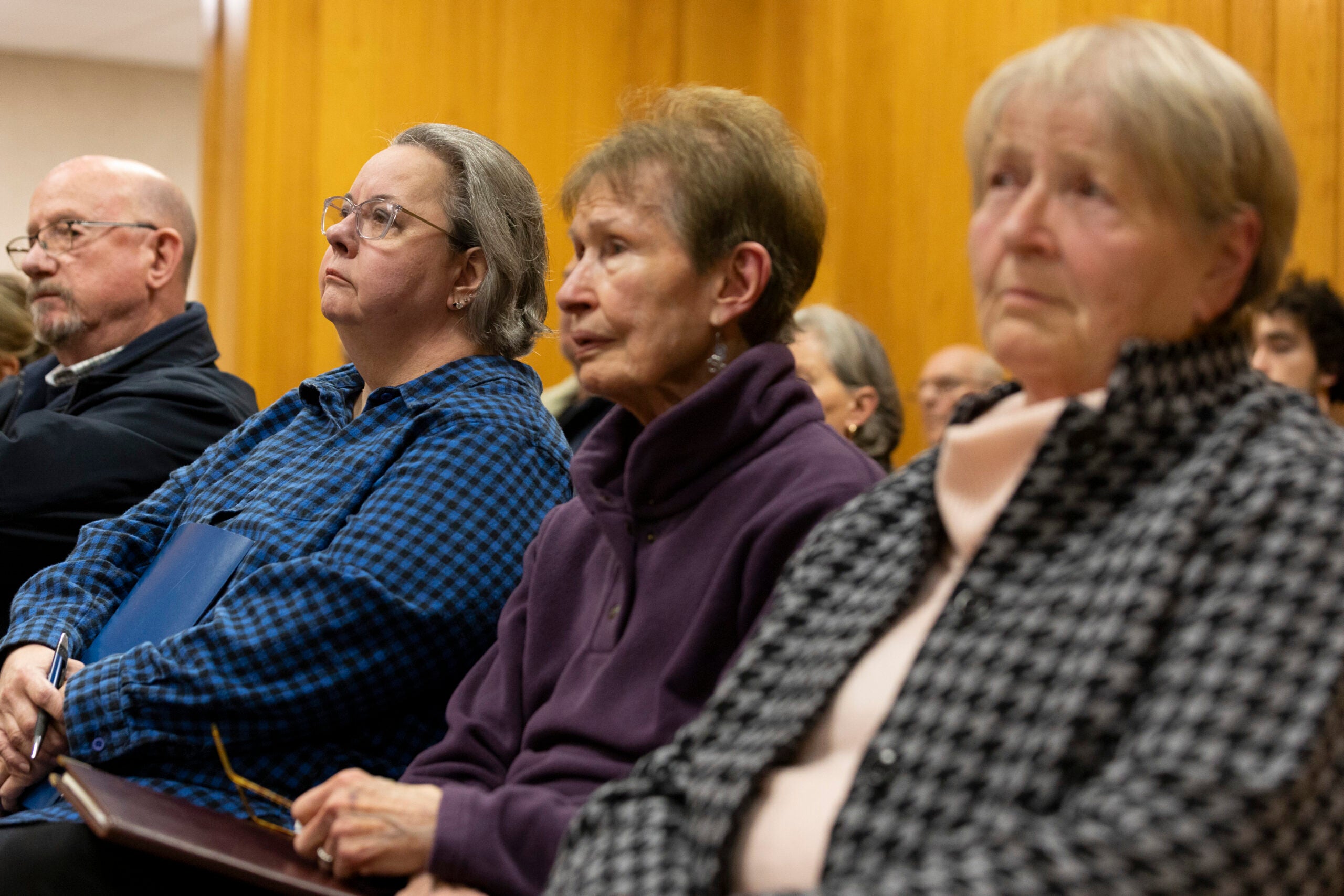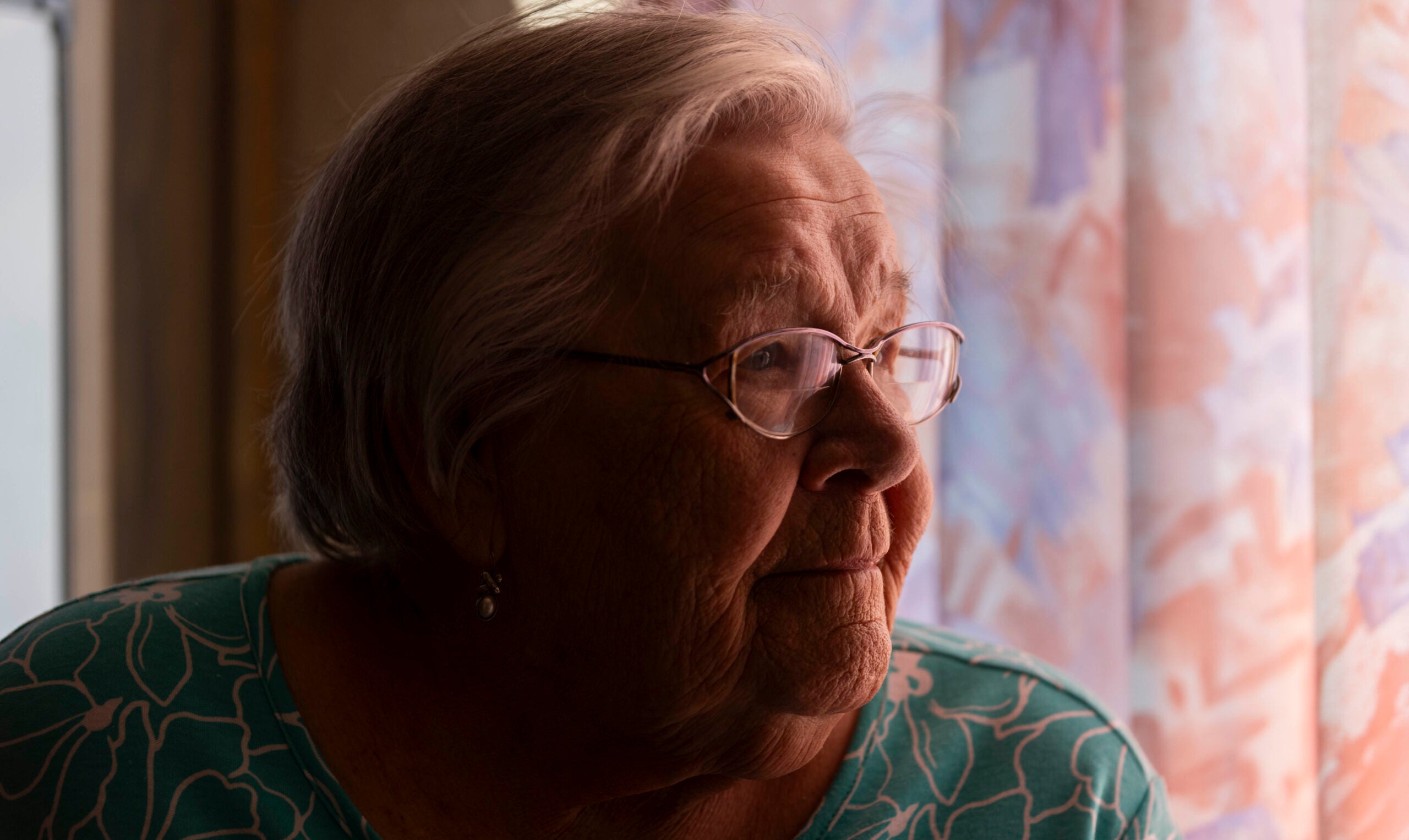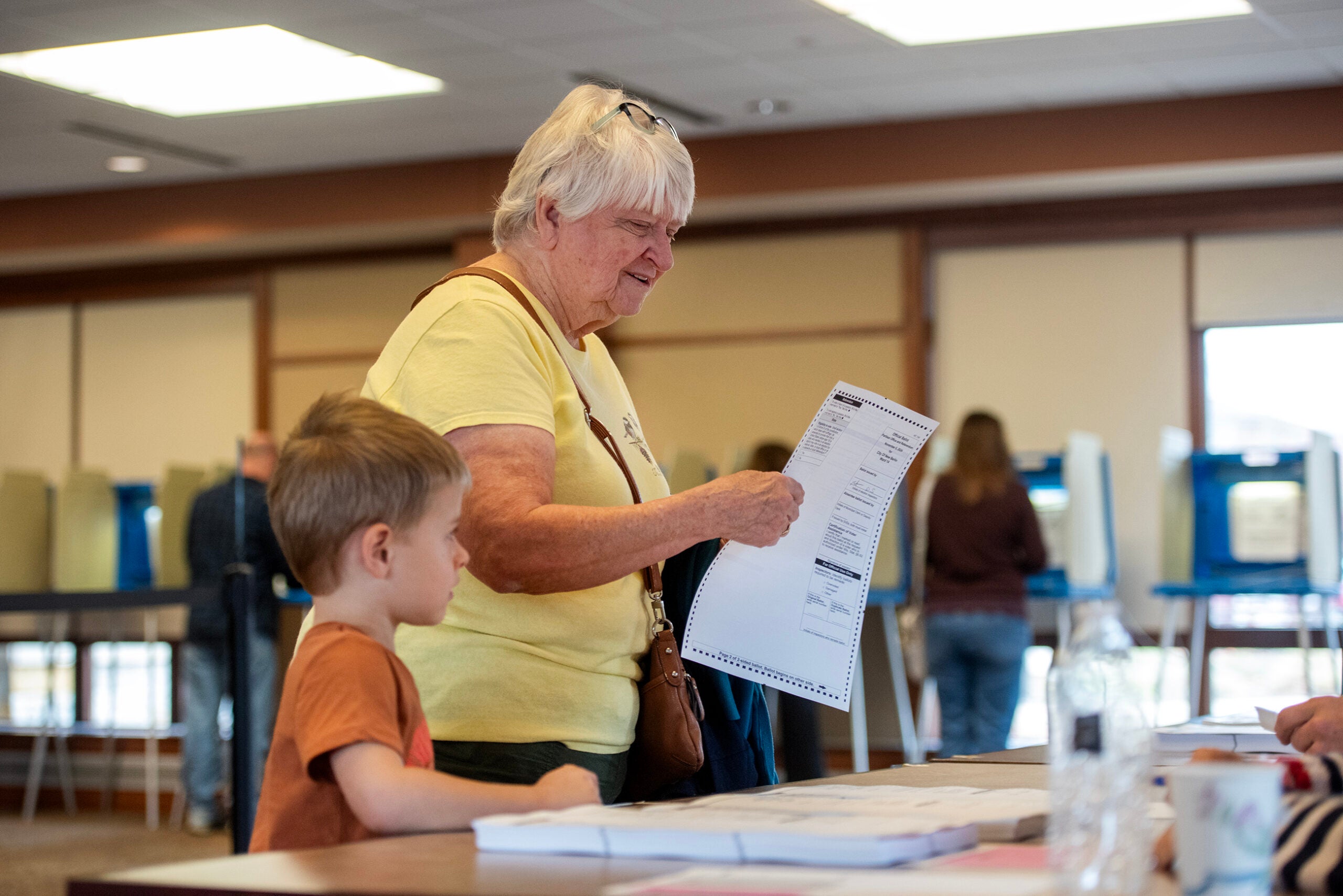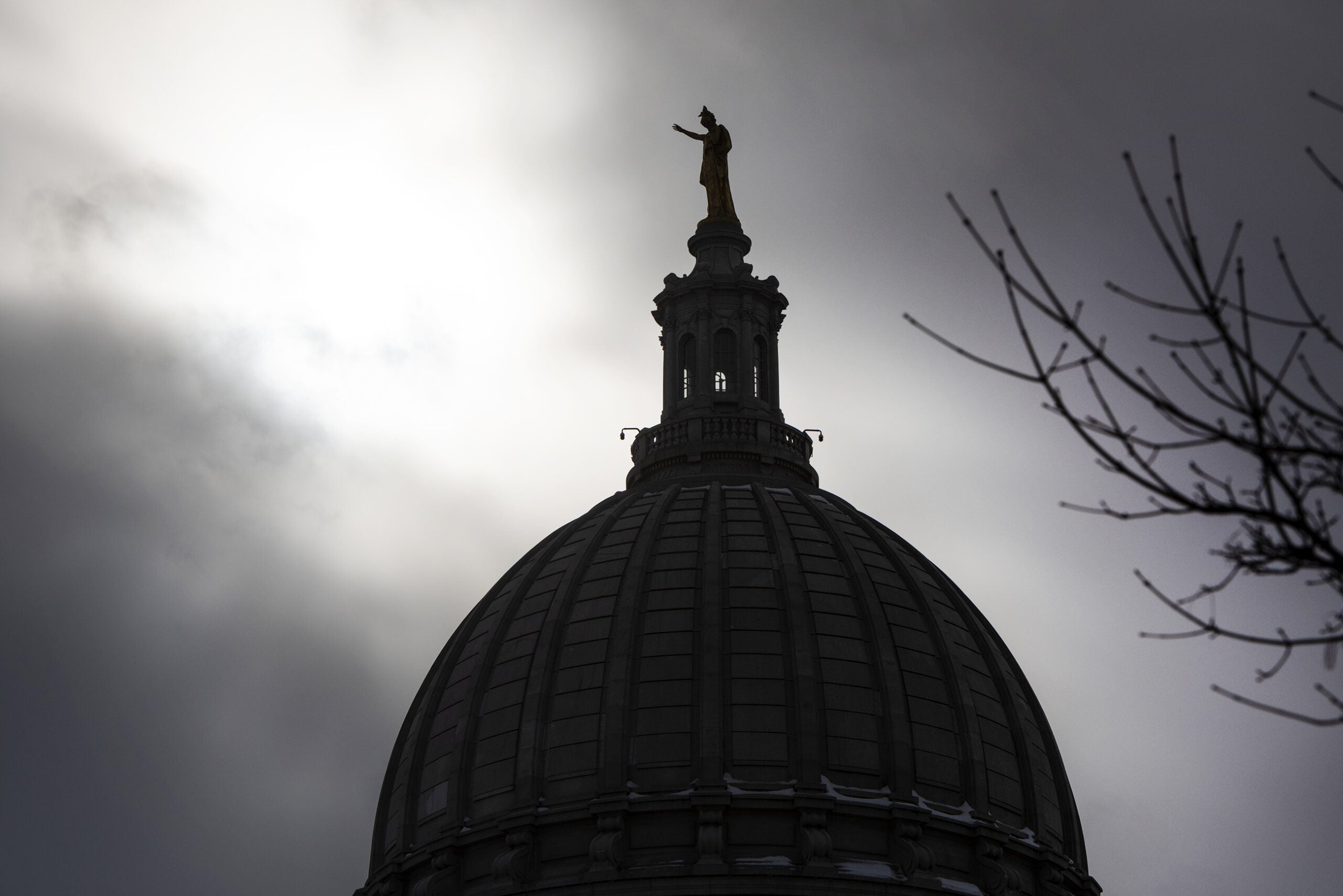The Racine County Sheriff’s Office claims the Wisconsin Elections Commission improperly decided special voting deputies couldn’t enter nursing homes to administer absentee votes, and alleges that opened the door for the improper use of absentee ballots.
Deputy Michael Luell said the sheriff’s office forwarded his reports alleging laws were broken to the attorney general’s office around March, but that the attorney general’s office did not accept them. He added that the sheriff’s office has “been in conversations” with the district attorney but no charges have been filed.
The Wisconsin Elections Commission decided in March 2020 that special voting deputies, people deputized by the county clerk to administer absentee voting in nursing homes and qualified care facilities, would not be able to enter those facilities because of COVID-19 concerns. Luell said that decision violated the law.
News with a little more humanity
WPR’s “Wisconsin Today” newsletter keeps you connected to the state you love without feeling overwhelmed. No paywall. No agenda. No corporate filter.
The commission called an emergency meeting Thursday evening. Shortly before 9 p.m., it released a statement professing “strenuous disagreement” with the allegations put forward by the Racine County Sheriff’s Office.
“To put it simply, we did not break the law,” commission chair Ann Jacobs said in a statement. “In fact, without action from the commission, many residents in Wisconsin care facilities could have and would have been disenfranchised and not able to vote in the 2020 elections.”
The statement was signed by five of six commissioners, including Republican members. Republican appointee Bob Spindell did not sign the statement.
Barbara Beckert, director of external advocacy at Disability Rights Wisconsin, said it’s very common for people in nursing homes to cast an absentee ballot without a special voting deputy. The deputies are only dispatched to care facilities if those facilities have a certain number of people already registered for absentee ballots. Nursing home staff frequently help residents fill out the applications for absentee ballots, and if residents need assistance in filling out their ballot in facilities that don’t meet the threshold for a special voting deputy to visit, staff may help them do so.
In fall 2020, the Centers for Medicare and Medicaid Services sent out a memo to nursing homes to remind them that Medicare- and Medicaid-certified facilities are required to assist residents in exercising their rights to vote, including by helping with absentee ballot applications or ballots or by taking them to polling places or ballot drop boxes.
“They were the highest risk populations, at greatest risk of contracting COVID-19 and potentially dying or suffering very serious complications,” said Beckert. “Election officials at the state and the local level and care facility staff worked very hard to balance the right to vote and the right to life — people’s lives were literally on the line, so that really drove what was an extremely difficult decision to not dispatch special voting deputies.”
Special voting deputies, under law, are required to have observers of both political parties with them, which would have meant sending even more people into facilities that were trying to minimize possible exposure to the coronavirus.
People with disabilities also have the right to have someone help them fill out their ballot under law, as long as their union or their employer is not the one assisting them.
At the Racine press conference, Sheriff Christopher Schmaling said his office received a complaint from a woman named Judy whose mother Shirley was in the Ridgewood Care Center nursing home and was marked as having cast a ballot, but died before Election Day. Luell said he then looked into voting in the nursing home more broadly, and noticed turnout was higher this year than usual and that there were more absentee ballots than usual. Luell noted some of the nursing home residents who cast ballots hadn’t voted since 2016 or 2012.
Turnout in Wisconsin in 2020 was the highest it’s been since 2004 at 72.3 percent, and absentee voting skyrocketed in the state because of COVID-19 concerns. Turnout is typically higher in presidential election years, meaning it’s not uncommon for voters to only vote once every four years.
A nonpartisan review of Wisconsin’s 2020 election by the Legislative Audit Bureau, released Friday, flagged only four people who may have voted twice in the election and 11 people whose absentee ballots may have been counted, even though they died before Election Day. There were more than 3.3 million ballots cast in the election in Wisconsin.
“The discussion about Special Voting Deputy access during the COVID-19 pandemic is over 18 months old and has occurred entirely in public meetings,” said Wisconsin Elections Commission Administrator Meagan Wolfe in an email. “Information about the topic is available on the WEC website.”
In total, 48 people at Ridgewood voted absentee, and Luell said he sent letters to all of their families asking if they felt their family members could have requested and completed a ballot. Eight said no, including Judy — whose last name the sheriff’s office declined to release.
“People have a right to vote, people have varying degrees of understanding, and I get that, you don’t need a PhD to vote,” said Luell. “But these loved ones believe their loved ones had such cognitive difficulties that they would not have had the ability to request a ballot and execute their right to vote.”
Under the Wisconsin Constitution and state statute, people cannot be denied the right to register or vote because they are allegedly incapable of understanding the objective of the elective process unless a court has found them incompetent — meaning that while the family members can raise concerns, they don’t have the power to determine whether their family members were able to vote.
“That means the opinion of a care provider, a family member, a friend or any other person about the competency of a person should not be allowed to prevent that person from registering to vote or voting,” said Beckert.
The sheriff called on the attorney general to launch an immediate investigation into the Wisconsin Elections Commission. Assembly Speaker Robin Vos, R-Rochester, later called for Wolfe to resign.
Schmaling said his office hasn’t taken anyone into custody, and that Ridgewood is the only care facility he knows of where anyone has come forward with concerns about voting.
“My suspicion is, this is the first time we’ve gone public with our information, is that we’re going to get complaints, and not just here in Racine County,” he said. “I have to believe that this is going to take place in every county across our state.”
Beckert said her organization has more concerns about barriers that prevent elderly people, people with disabilities and people in long-term care and nursing facilities from voting, such as Wisconsin’s restrictive voter ID laws. She noted many people in nursing homes and people with disabilities don’t drive. This spring, she got a call from the family member of a man in the Milwaukee-area enrolled in a community-based long-term care program.
“She said he’s been trying for three years to get his care team to help him to get a photo ID — he wanted desperately to vote but he hadn’t been able to do so,” she said. “It’s not just a matter of calling an Uber and sending someone over to the DMV — they may need accessible transportation, they may need help gathering their necessary documents.”
She said there are also gaps in the special voting deputy program. Some special voting deputies don’t have the authority to register residents, a power she’d like to see them have. She said deputies also sometimes don’t get to facilities until after the deadline to register to vote by mail or the deadline to request an absentee ballot, which can also make it hard for them to help residents cast their ballots.
“If they go out to assist someone and they (the resident) aren’t currently registered to vote, they’ll just be out of luck, they’ll be disenfranchised,” she said. “Let’s put our work into action, and let’s see how we can ensure that people who worked all their lives and sacrificed and fought for our country are not disenfranchised simply because they’re living in a care facility, and dismissed as, they’re cognitively impaired.”
The Racine County Sheriff’s Office investigation into Ridgewood voting is separate from the statewide election investigation headed by former Wisconsin Supreme Court justice Michael Gableman, who issued subpoenas earlier this month to mayors of Wisconsin’s largest cities.
Editor’s note: WPR’s Rob Mentzer contributed.
Wisconsin Public Radio, © Copyright 2025, Board of Regents of the University of Wisconsin System and Wisconsin Educational Communications Board.

